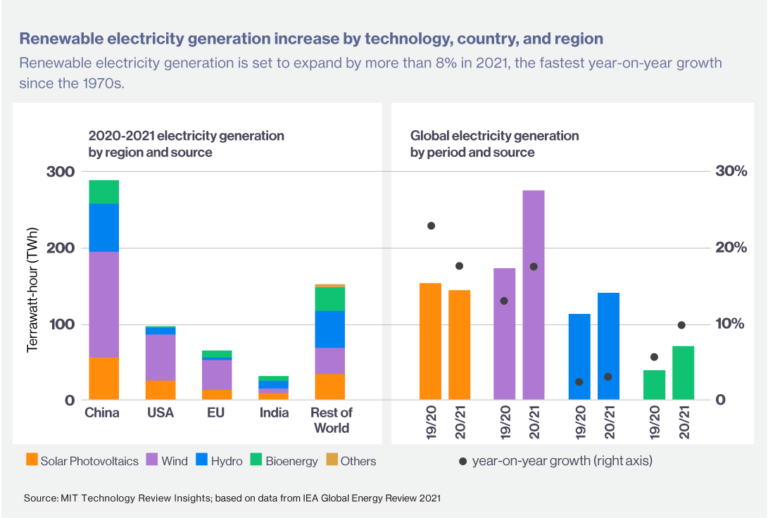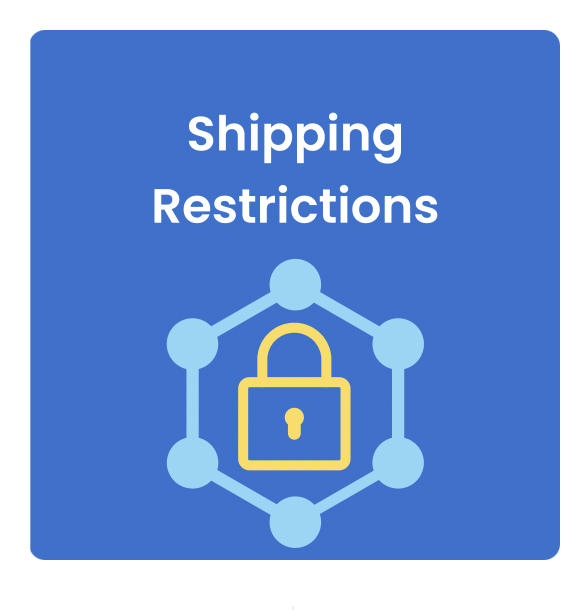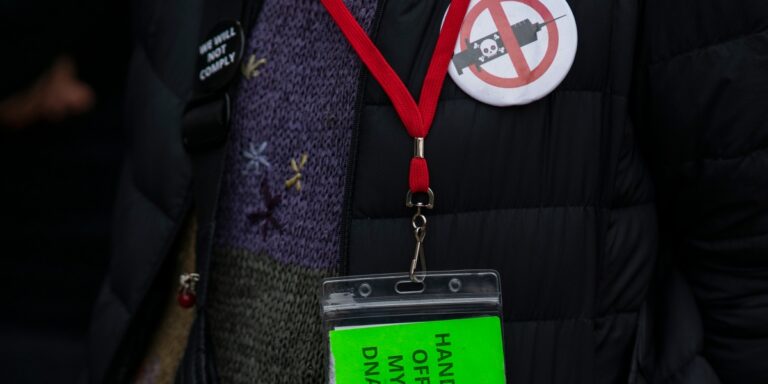When Chanin Kelly-Rae started working at Amazon in 2019 as a global manager of diversity in the company’s cloud computing division, she had big ambitions for her new job. She had nearly two decades of experience leading diversity and inclusion efforts inside important institutions, like Washington state’s governor’s office, but she’d never worked at an influential global business leader like Amazon.
But less than a year later, Kelly-Rae quit. Her tenure inside the company convinced her that Amazon’s corporate workplace has deep, systemic issues that disadvantage Black employees and workers from other underrepresented backgrounds. And she was dismayed by her perception that Amazon leadership was unwilling to listen to internal experts about how to identify and fix these problems.
“Amazon was not doing things in a way that represents best practices that would advance diversity and inclusion in any way that is meaningful and thoughtful,” she told Recode. “Let me add: Amazon appeared to be taking steps backward instead of forward.”
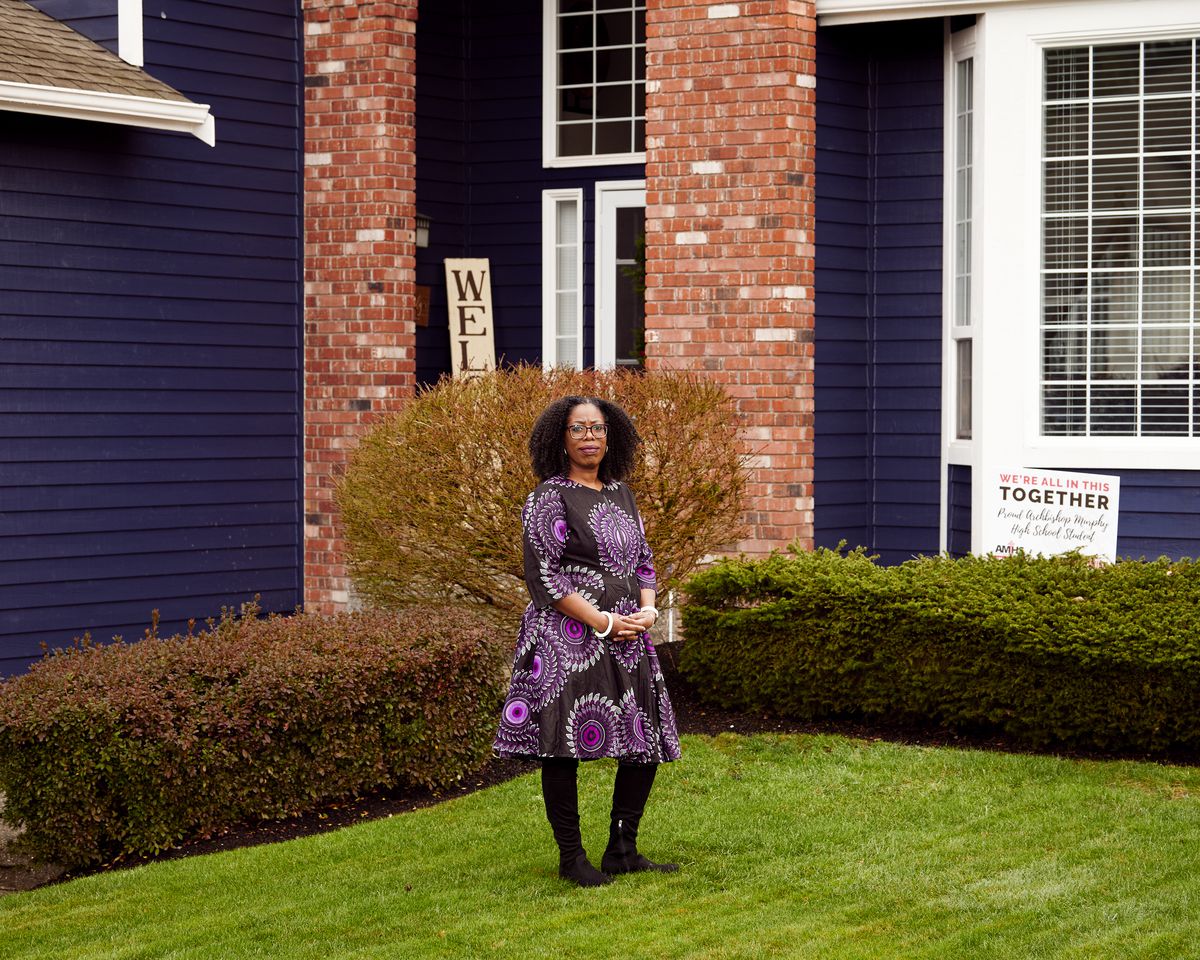
Kelly-Rae, who is Black, is one of more than a dozen former and current Amazon corporate employees — 10 of whom are Black — who told Recode in interviews over the past few months that they felt the company has failed to create a corporate-wide environment where all Black employees feel welcomed and respected. Instead, they told Recode that, in their experience, Black employees at the company often face both direct and insidious bias that harms their careers and personal lives. All of the current and former employees, other than Kelly-Rae, spoke on condition of anonymity either because of the terms of their employment with Amazon or because they fear retribution from Amazon for speaking out about their experiences.
Current and former Amazon diversity and inclusion professionals — employees whose work focuses on helping Amazon create and maintain an equitable workplace and products — told Recode that internal data shows that Amazon’s review and promotion systems have created an unlevel playing field. Black employees receive “least effective” marks more often than all other colleagues and are promoted at a lower rate than non-Black peers. Recode reviewed some of this data for the Amazon Web Services division of the company, and it shows large disparities in performance review ratings between Black and white employees.
“We struggle to bring [Black] folks in because there’s not a whole lot of desire, in my opinion, to go outside of our normal practices,” a current Amazon diversity manager told Recode. “And then when they do get here, it’s harder to get promoted, harder to get top-tier rated, and easier to get lowest-tier. All those things combined make it so folks don’t wanna stay. And folks will leave Amazon and go take on more senior roles elsewhere.”
Amazon spokesperson Jaci Anderson provided Recode with a statement that said:
“We disagree with this characterization of Amazon’s culture and believe that it misrepresents the facts and is based on the views of a small number of individuals.”
Amazon’s statement continued:
We work hard to build an inclusive culture that welcomes, celebrates, and values all people, but we’re disappointed if even one person has a negative experience. Teams across Amazon have hired hundreds of thousands of Black employees and thousands of Black managers, and our retention data and employee surveys illustrate that they have similar attrition rates and greater job satisfaction and feelings of inclusion than their non-Black colleagues. We recognize we have work to do, including increasing Black representation at all levels, and we set — and met — aggressive goals to double the representation of Black Vice Presidents and Directors in 2020 and are committing to do so again in 2021. We encourage anyone to compare our goals and progress towards achieving those goals with other large employers.
Some of those who spoke to Recode recounted what they saw as biased interactions inside Amazon’s corporate offices, including a white male manager who told a Black female employee, unprompted, that his ancestors “owned slaves but I’m pretty sure they were good to their slaves.” Others described microaggressions like being called out by managers and peers for not smiling or being friendly enough.
They told Recode that even when they reported these kinds of interactions to human resources, the offending colleagues often faced few or no repercussions, especially in cases where there were no other witnesses. Many of these employees work or worked for Amazon Web Services, the division of Amazon that is run by longtime Amazon executive Andy Jassy, whom Jeff Bezos recently announced will succeed him as Amazon CEO later this year. Still, several said they believe that Jassy cares about systemic racism impacting Black Americans inside and outside of the company.
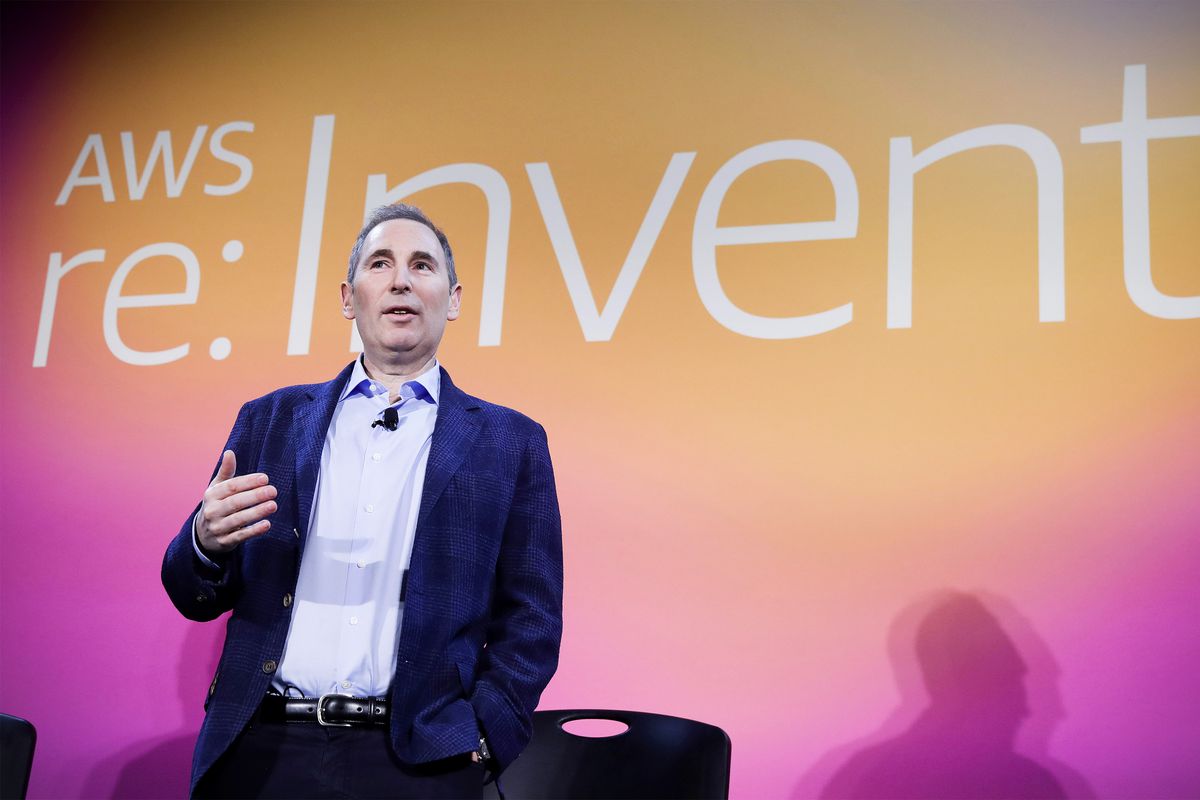
The employees Recode interviewed said the racial bias they encountered at Amazon affected them in a multitude of meaningful ways: Four of the Black women who spoke to Recode said they sought mental health counseling while at Amazon, either solely or in large part because of their experience working at the company. Some workers said treatment from colleagues and managers compelled them to leave the company, even though they’d once viewed it as the opportunity of their dreams. And some stuck it out at the company by transferring roles, and even taking demotions, to escape toxic bosses. One current employee said she’s still at Amazon because she believes she can make a difference.
“Changing the system from inside tends to be most effective,” she said.
Some of those interviewed said that not all teams and managers perpetuate these racial biases at the company. And several told Recode they were heartened when company leaders, including Bezos, spoke out publicly last year to condemn police killings of Black Americans and to support the Black Lives Matter movement.
But they all said their view is that the company is plagued by systemic issues that disproportionately harm Black employees — and several faulted the company’s senior leadership team, known as the S-team, for not focusing enough on identifying and implementing the right strategies to fix the biases. Some employees also told Recode that they think the human resources division has not done enough to root out employees that they feel have discriminated against them or their Black colleagues.
And these issues extend far beyond Amazon’s corporate workforce, as seen last spring after Amazon fired a Black warehouse manager named Christian Smalls, who had organized a small employee walkout at a facility to protest what the group said were inadequate health protections for workers during the early weeks of the pandemic. Amazon’s top lawyer, David Zapolsky, later referred to Smalls as “not smart, or articulate” in notes from a meeting with Bezos and other company leaders. After these notes leaked to the press, Amazon white-collar employees fumed over the treatment of Smalls and Zapolsky’s choice of words, which were viewed as offensive at best and racist at worst.
These allegations matter because the company is the second-largest private sector employer in the US, and how Amazon hires, treats, and retains Black employees directly impacts the hundreds of thousands of people who work for the tech giant. Beyond that, Amazon’s runaway success makes it a model for other businesses that try to emulate its internal culture and labor practices. But it also matters because Amazon runs businesses across varied industries — from retail to media to cloud computing to facial recognition software — and the decisions its leaders make, and experiences and points of view that inform their decisions, have the power to positively or negatively affect tens of millions of other Americans far outside of Amazon’s walls.
Kelly-Rae, for her part, said Amazon’s massive reach and power come with great responsibility.
“They have access to our lives in more ways than any other company,” she said. “The best thing they can do when creating opportunity is make sure that opportunity is enjoyed universally and not kept from some because of who they are.”
“Amazon is really good at things it wants to be good at,” she added, “and if Amazon decided it really wanted to be good at this, I have no doubt it can be.”
“You don’t need the data”
Kelly-Rae was only a month into her job as a diversity and inclusion leader for a department in Amazon Web Services, the company’s cloud computing division, when she started to realize the work ahead would be daunting.
She had gathered with the rest of Amazon’s diversity and inclusion employees at the company’s Seattle, Washington, headquarters for an inaugural all-staff meeting in January 2020, shortly before the Covid-19 pandemic turned the world upside down.
The teams had gathered for the first-annual internal diversity summit to share feedback, learn from their peers and leaders, and discuss goals and the right strategies to meet them.
During a Q&A session with employees at that summit, tensions rose as employees started questioning Beth Galetti, Amazon’s head of human resources and a member of Bezos’s S-team. According to three people who were present at the event, some employees were concerned about what they saw as a lack of resources for diversity and inclusion work, and they wanted to know why Amazon has for years failed to hit certain S-team goals related to the percentage of job applicants from underrepresented racial backgrounds who get an in-person interview.
The conversation reached a boiling point when Galetti was asked why D&I employees at Amazon who work outside of the HR department don’t have access to more granular data about the demographics of the workforce across different management levels.
“You don’t need the data to do your job,” was Galetti’s approximate response, the three sources said.
“That left everyone in the room aghast,” Kelly-Rae told Recode. “If the data doesn’t matter, then that body of work doesn’t matter.”
Those in attendance said the response was shocking not only because Amazon leaders boast about the central role data plays in everything the tech giant does, but also because data analysis is crucial in identifying problems and opportunities in diversity and inclusion work.
“That’s the antithesis of what you would say about anything at Amazon,” a current Amazon diversity manager told Recode.
The Amazon spokesperson said employees at the summit misunderstood Galetti’s intent and that she meant it wasn’t necessary to access the requested data to know Amazon needs to make progress in D&I, or to prove to company leaders that more needs to be done.
After Galetti’s comment, Kelly-Rae raised her hand to explain to Galetti the importance of such data. She then approached Galetti afterward to introduce herself, and to offer to continue the conversation at a later date.
“She told me when I was at Amazon longer, then I could talk to her,” Kelly-Rae told Recode. “And she walked away from me.”
Kelly-Rae left Amazon in September after just 10 months; she is now focused exclusively on a consulting business she founded 20 years ago, Chanin Kelly-Rae Consulting. She says the comments by Galetti, who is white, were one of the earliest signs in her brief tenure at Amazon that led her to believe the executive team was not truly interested in making it a priority to attract and retain employees from underrepresented backgrounds.
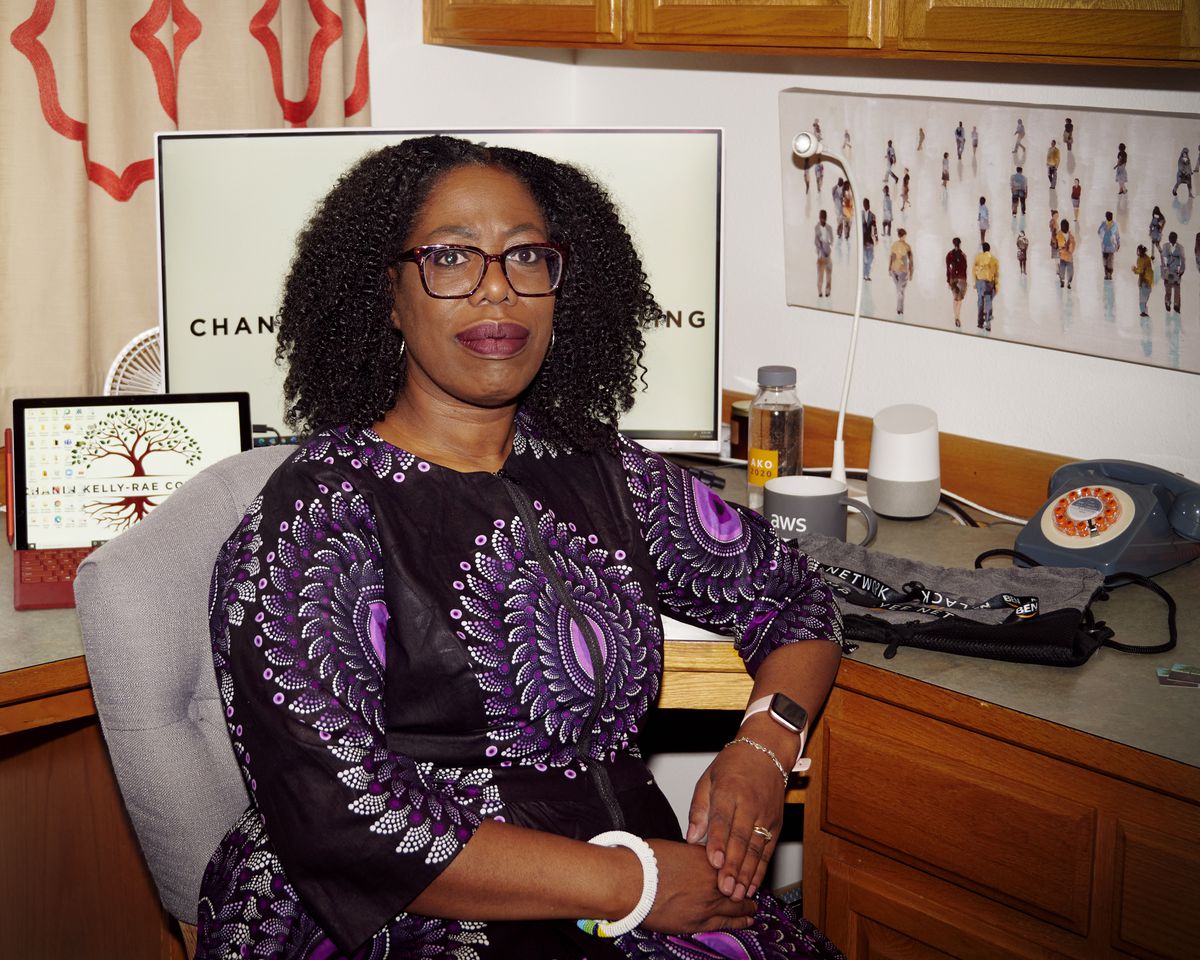
On the surface, Amazon’s diversity statistics look better than most tech giants: In 2019, 26.5 percent of employees identified as Black. But the main reason for that is the disproportionate number of Black workers employed in Amazon’s lower-paying front-line workforce — the hundreds of thousands of workers who pick, pack, and ship orders out of Amazon warehouses and, in some cases, deliver them to customer doors. (Amazon hasn’t publicly released data on the racial breakdown between its corporate and front-line workforces since 2016.)
Around 11 percent of Amazon managers in 2020 were Black, including both corporate staff and front-line warehouse and physical store positions. (Black Americans make up 12 percent of the entire private sector workforce across the US, but just 7 percent of managerial roles, according to new research from the consulting firm McKinsey.) In 2020, Amazon said it doubled its number of Black directors and vice presidents and would aim to do the same in 2021; Amazon has around 400 vice presidents globally, but only around a dozen are Black.
But even directors and VPs aren’t necessarily at the top of Amazon’s hierarchy, where corporate employees are slotted into Levels 4 through 12, which is occupied solely by Bezos (and soon, presumably, future CEO Jassy). The top leadership team, the S-team, is composed of about two dozen executives, including everyone at Level 11, and a select few VPs, who sit at Level 10. This exclusive group meets regularly to discuss long-term ideas as well as pressing issues, and to also set or approve goals for important initiatives across the company, including the diversity goals pertaining to directors and VPs. But the S-team hasn’t set a similar goal of doubling Black representation among its own group for 2021.
Only this summer did Amazon finally name its first Black leader to the S-team: Alicia Boler Davis, a vice president who runs the company’s warehouse network worldwide. Amazon’s spokesperson said the company has not set a goal to double Black S-team representation in 2021 but declined to provide a reason.
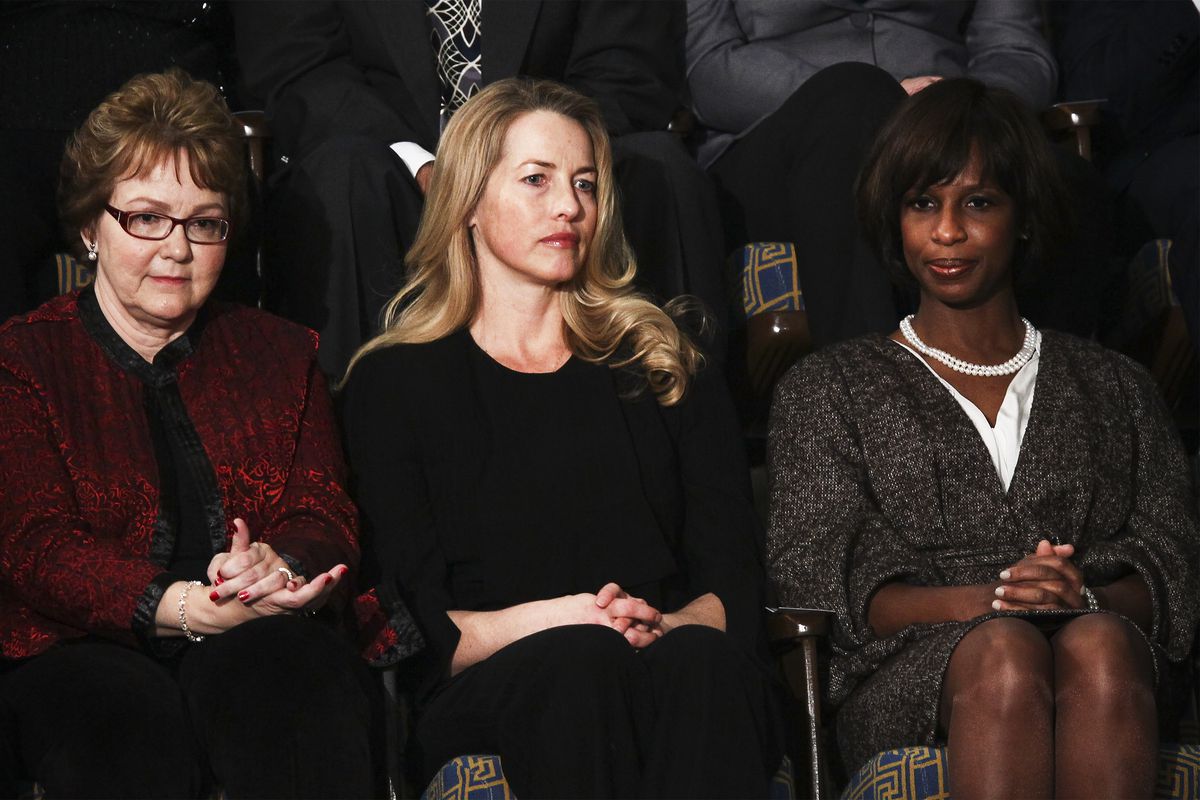
For Kelly-Rae, this goal to double the company’s Black VPs and directors is not enough. “If Amazon was to ever enjoy wholesale success in diversity and inclusion programming, they need to have experienced D&I practitioners represented at every level,” Kelly-Rae told Recode. “They need someone on the S-team.”
For other Black managers in the division, Galetti’s “you don’t need the data” moment was an inflection point for a different reason.
“That, for me, was transformative,” a current Amazon diversity manager told Recode. “I thought, ‘Shit, if I can’t get buy-in and help from [Galetti], where do I go?’”
Down-leveling
All 10 Black employees who spoke to Recode said either they or Black colleagues they know were hired at lower levels in Amazon’s internal hierarchy than their qualifications justify. At Amazon, your level means a lot: It dictates a role’s importance, salary range, and additional compensation (usually in the form of Amazon stock). Coming in at a lower level can set back your career at Amazon by years.
“I think there are very serious systemic issues around leveling,” Kelly-Rae said. This observation isn’t merely anecdotal. Kelly-Rae’s former role as a diversity and inclusion manager gave her specific insight into some of the company’s internal hiring and promotion practices. “It is not uncommon for women, and especially Black women, to have a role advertised at one level but extended an offer at a position that is lower.”
Such a move even has its own name among Amazon employees: down-leveling.
Sources told Recode that’s what happened with Black employees who joined Amazon in 2016 when it acquired Partpic, an Atlanta-based tech startup founded by two Black entrepreneurs. Multiple former Amazon employees familiar with the situation told Recode that both Partpic founders left after approximately three years because they had negative experiences at Amazon.
They said the startup’s co-founder/CEO at one point took a demotion so that she could remove herself from a toxic working relationship with a disrespectful boss. And they said she spent considerable time during her tenure fighting for promotions for several employees who had PhDs but were down-leveled when they joined.
Sources said Amazon slotted several Black Partpic employees with PhDs into Level 4 roles when they joined the company — the lowest level for any corporate employee, including those who have just finished their undergraduate degree. Another employee, Partpic’s chief technology officer, was placed at Level 5 though some of her peers at Amazon with similar education and work backgrounds were working at Level 6. (She was eventually promoted to Level 6, but it took two years; she later transferred to AWS.) Sources told Recode that the other Partpic co-founder left, in part, because he felt misled and disrespected when Amazon quickly killed the startup’s core technology shortly after it launched as a standalone feature in the Amazon shopping app.
Both Partpic founders declined to comment.
And for Kelly-Rae, down-leveling wasn’t just something she observed happening to other Black Amazon employees. She said it happened to her. When she received her offer to join Amazon in late 2019, she confronted an unpleasant surprise: Despite her almost 20 years of experience, Amazon slotted her into a management level that was lower than the one a recruiter originally described. That meant a lower salary and fewer shares of Amazon stock.
Kelly-Rae’s best guess as to why she was down-leveled?
“Culture fit,” she said.
This kind of down-leveling can happen at Amazon, in part, because of the company’s hiring process. Interviews are conducted not only by recruiters and hiring managers, but also by soon-to-be peers of the candidate and at least one person outside of the immediate team, called a “bar raiser.” Amazon told Recode these bar raisers are trained, in part, to identify potential bias during the interview process. A single interviewer taking part in what Amazon calls the hiring “loop” can essentially vote against hiring a candidate, or can recommend that a candidate get down-leveled. Candidates are not told why they are being slotted at a certain level, or one lower than the one they were first told.
Anderson, the Amazon spokesperson, would not confirm or deny Kelly-Rae’s specific claim. She acknowledged that it’s common for candidates to be down-leveled during interview processes, but said this is something that happens to employees from all backgrounds, and that candidates are sometimes even up-leveled.
Kelly-Rae said two AWS VPs, including a hiring manager, later acknowledged that she should have been brought on at a higher level, but they hadn’t rectified the mistake by the time she left.
Amazon judges its version of “culture fit” by evaluating job candidates, and existing employees during performance reviews, on some of the company’s 14 leadership principles. Several former Black employees pointed to these principles as possible tools for discrimination, and said they could provide cover for some managers to use them against Black employees. The most problematic leadership principle according to these former employees is “Earns Trust,” which reads in full: “Leaders listen attentively, speak candidly, and treat others respectfully. They are vocally self-critical, even when doing so is awkward or embarrassing. Leaders do not believe their or their team’s body odor smells of perfume. They benchmark themselves and their teams against the best.”
“If you talk to people across Amazon, they’ll say that if the company ever wants to weaponize a leadership principle, the one they go to often is Earns Trust,” Kelly-Rae said. “What does it mean? It’s a catchall. It means nothing so it can mean everything. Someone can say it if they don’t think you are a team player. They can say it if they don’t believe you’ll fall in line. They can say it if they believe you’re someone who pushes back too much. And they can say it if you are someone who doesn’t push back enough. They don’t have to quantify it or qualify it.”
Three other former Black Amazon employees interviewed by Recode said the Earns Trust leadership principle was used as reasoning to try to push them, or Black colleagues at the company, out. A Black former Amazon employee told Recode that a director once told them and other Black employees in a candid conversation about the downsides of the company’s values system that “the one they use against Black women specifically was Earns Trust.” After hearing this, this employee said they started pushing back on Earns Trust in hiring and feedback processes because they realized it was “used as a scapegoat. Because no one really dives deep into what that leadership principle means, no one questions it.”
Kelly-Rae’s personal experiences, as well as what she observed around her as a diversity leader, convinced her that she shouldn’t just quietly leave Amazon.
“Sometimes you need people willing to be brave to say there’s a lot of stuff that is wrong that needs to be looked at critically in order to be fixed,” Kelly-Rae said. “I am willing to put my neck out and to put skin in the game, because if leaders in the 1940s and ’50s and ’60s didn’t do it, then I wouldn’t be where I am today. I am putting my neck out so that in five years or 10 years or 20 years, someone will look back and say, ‘I’m glad that somebody put their neck out to effect meaningful change so that we can continue to move forward as a society one organization at a time.’”
Promotions? Good luck.
The level that an employee is slotted into when they join Amazon wouldn’t be such a big deal for these employees if getting a promotion wasn’t such an ordeal. But Amazon is notorious in the tech industry as a difficult place to get a promotion for people from all backgrounds. And diversity and inclusion experts who’ve worked at Amazon said this already steep challenge is even harder for Black, Latinx, and Native American (BLNA) employees. They told Recode that internal data shows promotion rates are lower for Black employees, as well as Latino and Native American employees, when compared to employees of other races at the company, such as whites and Asians.
For this reason, the current diversity manager who spoke to Recode tells Black friends who apply to Amazon that they should not accept any employment level at the company where they won’t be happy remaining “for the long run.”
Amazon performance reviews also seem to show signs of bias, according to internal data viewed by Recode. In AWS, for example, 12.7 percent of Black employees received the lowest rating — dubbed “least effective” — in annual performance reviews for 2018, compared to just 6.6 percent of white employees. The overall internal goal for this tier is 5 percent of employees. Similarly, only 14.5 percent of Black employees were given a “top-tier” rating in AWS that year, compared to 21.8 percent of white employees. Amazon’s internal target for this tier is 20 percent.
Performance ratings for 2019 also showed disparities, though slightly smaller. Around 10.2 percent of Black AWS employees received a “least effective” designation, compared to 6.2 percent of white employees. Meanwhile, 15.3 percent of Black AWS employees received the highest performance rating in 2019, compared to about 22 percent of white workers. Recode also viewed partial data for 2020 that suggests the gap is slowly shrinking but that disparities along racial lines remain.
Amazon disputed all of this data but declined to provide alternate information.
But some say the discrimination they encountered at Amazon was worse than they could have imagined. They said it took a toll on them both at work and at home, negatively impacting their health and personal relationships.
Their troubling experiences are varied, but many share common themes. One Amazon employee who is a Black woman says she has heard two white colleagues proclaim that they do not believe in corporate diversity efforts. Two Black women said coworkers touched their hair without asking. Three Black women told Recode that either coworkers or managers have told them at various times to smile more or be more friendly. And several Black women told Recode that they’ve had to deal with white colleagues and managers stealing credit for their work.

“I think the ‘accomplishment’ of getting a corporate role at Amazon — the best-paying role of my life — and the opportunity to do something at a scale I never imagined, ended up with pain and trauma I could not have anticipated,” a Black female PhD who worked at Amazon for several years told Recode.
“I’ve never felt more used and disposable in my life,” she added.
Another Black female Amazon employee detailed interactions with a white manager, on DiscoTech, a website created last fall for employees to anonymously share stories about discrimination they’ve encountered working inside large US tech companies.
“He would say ‘You know I’m a good guy right? My ancestors owned slaves but I’m pretty sure they were good to their slaves,’” the anecdote on DiscoTech reads. “Seeing as how he’s a manager and I’m an individual contributor, I wondered if he saw me as a slave. I asked him ‘What is it about me that makes you feel comfortable saying these things to me?’ His reply, ‘because you look safe and smart.’ As a lighter skinned black woman, I felt he shared this because his default perception of black people is that we are ‘dangerous and not smart.’”
The anecdote continued: “He then goes on to tell me, ‘I have a friend who is black as night but I don’t care if you’re purple or polka dot; I don’t see color.’ I confronted him about his offensive comments and he apologized. He had to go to mandated D&I training. The company didn’t acknowledge the totality of his comments and cherry picked the one they would address him about.”
A person familiar with the incidents confirmed them to Recode last year.
In a statement, the company said:
Amazon works hard to foster a culture where inclusion is the norm for each and every one of our 950,000+ employees, and these anecdotes do not reflect our values. We do not tolerate any kind of discrimination in the workplace and investigate all claims reported by employees to Amazon Human Resources or through our anonymous Ethics Hotline.
“There is no quick fix”
The employees who’ve stayed at Amazon are sticking it out for now and looking for any signs of positive change. One bright spot was the appointment of Boler Davis, the global warehouse chief, to the S-team in August. Others are also holding out hope that Jassy, Bezos’s successor, will play a direct role in pushing diversity and inclusion initiatives forward at the company.
While many of the sources who spoke to Recode told stories of discrimination inside of AWS, several said they believe Jassy cares about systemic racism impacting Black Americans inside and outside of the company, based on notes he’s sent to employees over the last year and his role as executive sponsor of company’s Black Employee Network affinity group, which has 34 internal chapters in various US cities and countries around the globe. But they were skeptical that one person, even the CEO, could turn the ship completely in the right direction.
In 2020, Amazon began requiring all employees to take diversity and inclusion training, and signed up as a launch employer for a third-party racial equity evaluation called the Management Leadership of Tomorrow’s Black Equity at Work Certification. Amazon also held a virtual “career enrichment” summit called Represent the Future that was attended by 5,000 Black, Latinx, and Native American professionals interested in learning about working at Amazon.
Well-deserved recognition for a terrific leader. We have a lot of work to do, Angelina, but committed to working with you & the entire Amazon Black Employee Network (BEN) to make meaningful change. https://t.co/xAYd6dRlEQ
— Andy Jassy (@ajassy) December 4, 2020
Some employees also hope Amazon’s goal of doubling the number of Black VPs and directors leads to more promotions and hiring of lower-level Black employees.
But Kelly-Rae, the former AWS diversity manager, said that although those goals sound great, they have significant limitations. One of the biggest issues, according to her, is that there are not S-team leaders whose compensation or job security is tied to building a more diverse and inclusive company. (Starbucks, for example, announced in October that the compensation of top company executives would be affected by diversity and inclusion successes or failures.)
The Amazon spokesperson said that, in the wake of the Black Lives Matter protests last year, a majority of the leaders in this exclusive group started meeting every two weeks with HR and D&I leaders to evaluate diversity goals and new investment opportunities, while discussing how to remove roadblocks to progress.
Another former Amazon diversity and inclusion employee said they’re bothered that the goal of “doubling” Black representation has become a boasting point for some at Amazon. They said they heard an AWS business leader brag about how the goals would be perceived externally, saying that “No other company can say that they’re doubling their number of Black VPs.”
We’re at @Code2040 as part of our #WIRED25 festival. Mimi Fox Melton, Senior Director of Community Mobilization, says that according to research by the Kapor Center, on average people of color leave the tech industry within 3 years of entering. pic.twitter.com/dNTGIQ4lFT
— WIRED (@WIRED) October 12, 2018
“I think that tying executive compensation to any sort of goal is effective,” said Mimi Fox Melton, the acting CEO of Code2040, a nonprofit focused on racial equity in the tech industry. “And certainly at Code2040, what we’ve found is that efforts at a company where the C-suite has not bought into the importance … of racial equity, fail — period.”
Fox Melton added that the goals need to be tied to metrics that go deeper than mere hiring or retaining numbers, and should track “the material experience of those people at work and whether or not those people are experiencing cultures that help us contribute to the fullness of our capacity.” New research from McKinsey found that only 23 percent of Black employees across the US private sector believe that they receive “a lot” or “quite a bit” of support from their respective employers to advance their careers.
Amazon tracks the experience of all employees through Connections, an HR program that asks employees to answer a daily question about working at the company. The company says the answers remain anonymous. The Amazon spokesperson said that data from this program over the last year shows that Black employees express higher job satisfaction and feelings of inclusion than non-Black peers. Diversity employees who spoke to Recode questioned the findings and said Amazon workers don’t always feel safe responding honestly to the company’s questions.
Either way, if Amazon took steps like tying leadership compensation to such goals, or stood out as a leader in the space in other ways, it would be sending a message internally, but also in the broader tech industry.
“If a big company, in particular, really dedicated itself and put its weight behind diversity and, more specifically, racial equity, it would send shockwaves throughout the tech industry,” Fox Melton said. “Hopefully they would share their successes and failures and really pave the path that others follow.”
“One of the biggest challenges for companies is that there is no quick fix,” she added. “It’s not going away with three or four years of minimal effort.”
Several of the Black employees who spoke to Recode acknowledged that Amazon isn’t alone among the tech giants when it comes to diversity issues and accusations of internal racial discrimination. Current and former employees of tech giants, including Google and Facebook, have made such claims in the past year. But they believe that should only raise the bar for Amazon to be a leader in this work, and take actions that back up its words.
“The inequitable and brutal treatment of Black people in our country must stop,” Amazon wrote in a blog post last year. “Together we stand in solidarity with the Black community — our employees, customers, and partners — in the fight against systemic racism and injustice.”
Kelly-Rae believes Amazon can be a model for other tech giants because it is already a proven leader in industries as varied as online retail, cloud computing, and video streaming.
“Tech is collectively looking for a solution, and if one of them presents the solution, others will follow,” she said.
But to accomplish this, “what is required is a robust strategy where there is accountability at every level,” she told Recode.
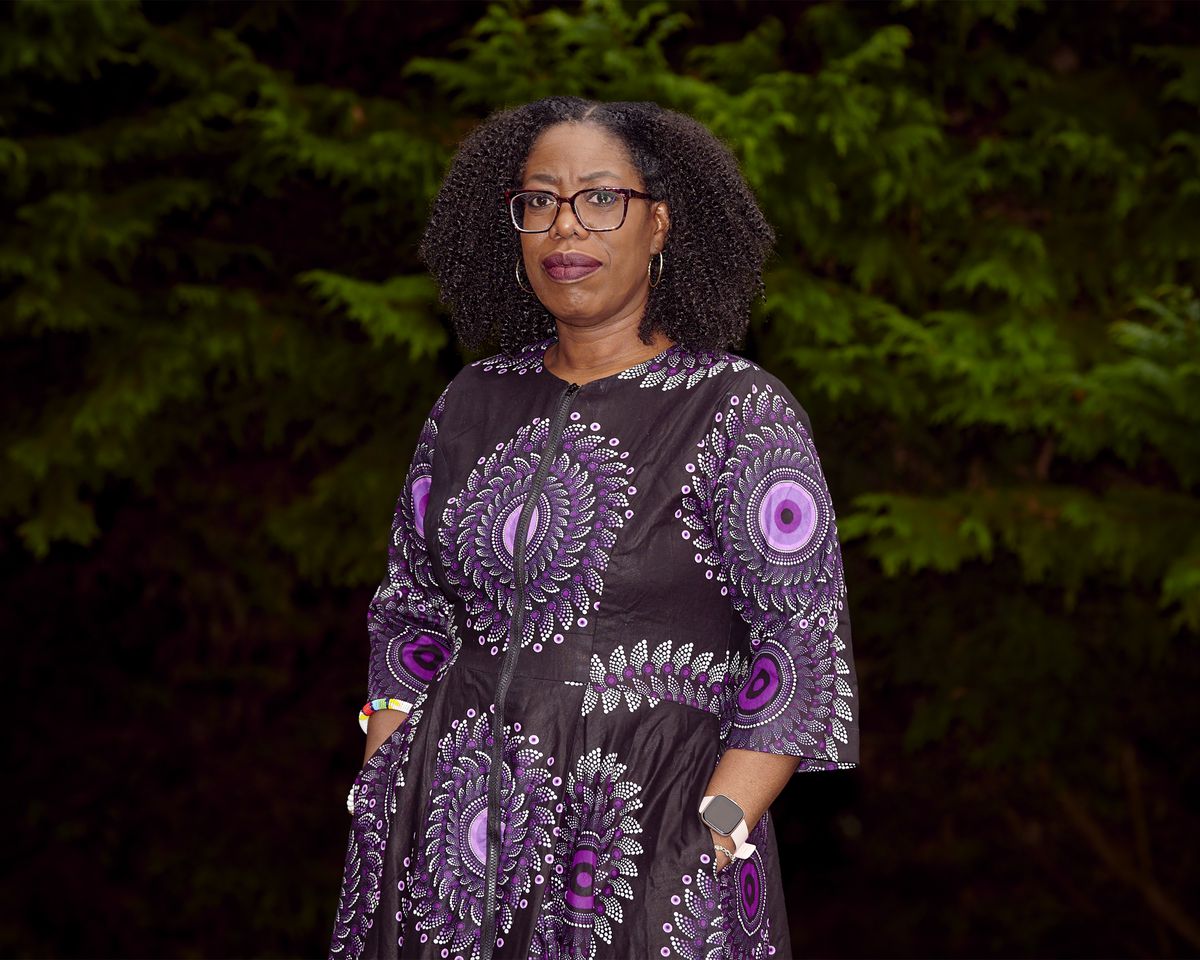
Kelly-Rae said she worked with many colleagues who were striving to make Amazon a more inclusive and equitable company for all people, no matter their race or gender. But she fears little progress will be made if the company’s top leadership team doesn’t do more.
“I think they believe that diversity and inclusion is just recruiting and training,” she said. “I think they think that’s all that it is. I sent an email to Jeff Bezos, and copied Andy Jassy, that said, ‘You don’t respect the discipline of diversity management or you don’t understand it.’”
Company-wide goals that the S-team sets carry a lot of weight, and new ones related to race may have a positive impact on the experiences of Black Amazonians. But Kelly-Rae said from her career-long experience, Amazon cannot transform into a company with a level playing field for all employees if the top leadership team does not include an executive with expertise in the field.
“If HR is important, they have an executive on the S-team,” Kelly-Rae said. “If infrastructure is important to Amazon, they have representation on the S-team. And more importantly, they make data-informed decisions and there’s a senior person having to produce based on data.”
“People track things,” she added, “that matter to them.”

